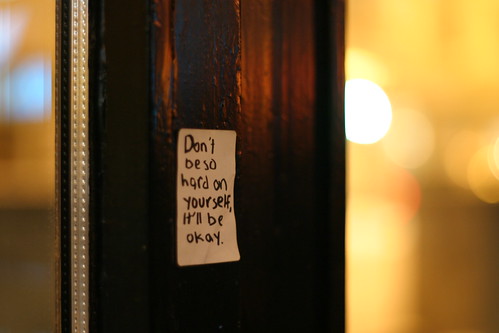Motivation has been coming up a lot lately as a topic of conversation. I had a fantastic conversation with a colleague at work about how we could encourage Learner (rather than Judger) behaviours at work. As a director of the organisation, he is undertaking a review of how we provide feedback in the organisation (currently via the standard annual performance review). He had just finished reading Drive: The Surprising Truth About What Motivates Us, by Dan Pink and lent it to me to read.
2 years ago the Managing Director had referred me to Pink’s TED Talk on motivation (available below). I understood the concept: that some performance is better motivated by intrinsic rewards; autonomy, mastery and purpose; rather than extrinsic rewards such as money (or carrots!). At the time though, I just thought he was trying to convince me not to ask for a pay rise!
Dan Pink on Motivation at TED
Why do we try to motivate people?
Motivation has long been considered a key factor in determining performance: the MARS model of individual behaviour identifies motivation as one of the determinants of performance. So logic dictates that if you can increase people’s motivation, you can improve their performance.
Here horsey, come get a carrot.
Businesses still seem to think that dangling ever-increasing carrots will attract talent. Even Google is, according to TechCrunch, going to “extraordinary efforts" to retain staff, offering incentives of up to $3.5 million despite the precedent it is creating.
Pink has collated a range of scientific evidence that shows money is merely a hygiene factor (insufficient pay is a de-motivator; but excessive pay does not increase motivation). The implication for business is that we need to pay enough to make money a non-issue; but any more than that does not deliver increased performance.
So how do we motivate people?
Pink identifies three intrinsic motivators:
Autonomy
Give people the power to select what they do (autonomy of task), when they do it (autonomy of time), how they do it (autonomy of technique) and with whom they do it (autonomy of team). There is, of course, greater accountability when there is autonomy; but this is accountability for results without restrictions on how this is delivered. Books such as The 4-Hour Workweek are encouraging more and more people to innovate how, when and from where results are delivered. Examples include telecommuting, workshifting and outsourcing tasks.
Mastery
Give people the opportunity to master something that matters to them. It is important to note here that mastery is not something that comes easily, it takes time and determination. If you aren’t passionate about it, you will give up. There are plenty of tools to help you discover what your strengths are. If you can’t recognise your progress, you will give up; so it’s important to seek sources of honest feedback.
Purpose
Give people the opportunity to make a difference; to achieve something for a cause greater than themselves. This might relate to environmental sustainability, to social justice, or to some other societal interest. Or it might just be seeing their contribution to the economic success of the organisation they work for. Either way, people need to understand WHY they are doing things and see the direct impact of their actions. The purpose gives us a sense of direction and the impact gives us a sense of worth and importance.
Does this work?
Drive has confirmed some things that I didn’t quite know how to verbalise about the organisation I work for. We have very low turnover, yet we don’t pay huge salaries. What we offer instead is purpose and autonomy. We’re big on explaining to employees why we do things and we’re big on accountability for results (whilst letting them figure out the best way to achieve those results). That’s why people are happy. Could we improve? Sure, but we’re on the right track… And we’re constantly adjusting how we do it to get better (We’ve even got a Director looking into how we can provide better feedback).
So what have I learnt…
Money is not the be-all and end-all. Sure, it may attract talent; but it doesn’t elicit performance. For sustainable results, people’s intrinsic needs must be met. There are people who love their work and produce amazing results time after time. These people aren’t working for the money, they’re working for the love of it. If you can take money off the table, you can live the life you dream of. To be one of these people, find work that is autonomous, masterful and purposeful. If you’re an employer, provide this environment for your staff and their performance will astound you.
Too many words!
After discussing it over dinner with friends, one of them, Jane from Learning Fundamentals, forwarded me an image that summed it up quite nicely:

So if this has piqued your interest, go and read Drive: The Surprising Truth About What Motivates Us. It will change the way you work, the way you manage your employees, the way you teach your children; and there’s even tips for getting fit!





 Who I am today is vastly different to who I was a few years ago. There have been lots of subtle, unintentional changes. There have even been rather significant changes spurred on by the encouragement of those who care for me. There is, however, one significant event that stands out in my mind as a turning-point in my life.
Who I am today is vastly different to who I was a few years ago. There have been lots of subtle, unintentional changes. There have even been rather significant changes spurred on by the encouragement of those who care for me. There is, however, one significant event that stands out in my mind as a turning-point in my life.

